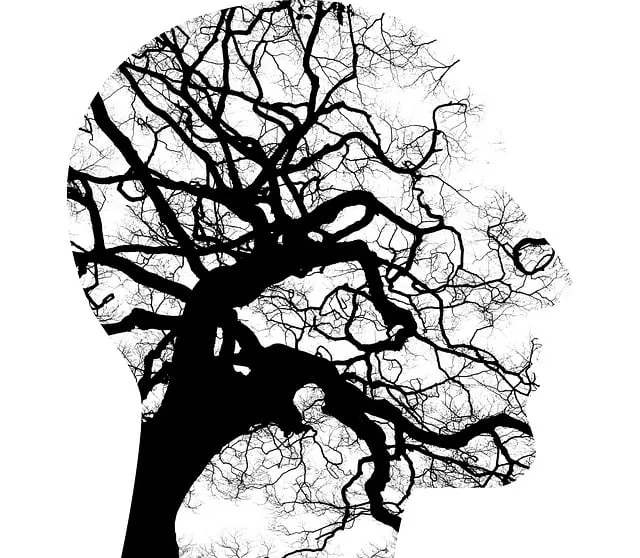Cultural diversity significantly impacts mental healthcare, particularly in Northglenn where Kaiser Permanente offers behavioral health services. To address this, mental health professionals must prioritize cultural sensitivity, understanding variations in emotional expression and help-seeking behaviors. Kaiser Permanente behavioral health services in Northglenn excel at this through self-awareness exercises, comprehensive risk management, and tailored communication strategies. Their holistic approach, including provider education and public awareness campaigns, enhances care quality, improves access, and drives positive treatment outcomes for diverse patient populations.
Cultural sensitivity is a cornerstone of effective mental healthcare, particularly in diverse communities. This article explores the profound impact of cultural diversity on mental health care and highlights strategies for delivering culturally competent services. We present a case study of Kaiser Permanente Behavioral Health Services Northglenn, showcasing their successful navigation of cultural barriers. Through understanding diverse cultural contexts, therapists can create inclusive environments fostering positive patient outcomes. We discuss training methods to enhance cultural sensitivity, emphasizing their role in revolutionizing mental healthcare practices.
- Understanding Cultural Diversity and Its Impact on Mental Health Care
- The Role of Cultural Sensitivity in Effective Therapy
- Kaiser Permanente Behavioral Health Services Northglenn: A Case Study
- Strategies for Providing Culturally Competent Care
- Enhancing Patient Outcomes through Cultural Sensitivity Training
Understanding Cultural Diversity and Its Impact on Mental Health Care

Cultural diversity is a vital aspect of modern society, and its impact on mental healthcare cannot be overstated. In areas like Northglenn, where Kaiser Permanente behavioral health services are provided, understanding and respecting cultural differences is essential to delivering effective care. The mental health landscape is increasingly diverse, with patients coming from various ethnic, racial, and cultural backgrounds, each bringing unique perspectives and experiences. This diversity enriches the therapy process but also presents challenges for healthcare providers.
For instance, cultural beliefs and practices can influence how individuals express emotional distress or seek help, affecting their interaction with mental health professionals. Risk Assessment for Mental Health Professionals becomes crucial to ensuring that these differences are not barriers to treatment. Self-Awareness Exercises and thorough Risk Management Planning can help practitioners navigate these complexities, fostering a more inclusive and sensitive environment. By embracing cultural sensitivity, Kaiser Permanente behavioral health services in Northglenn aim to provide care that is not only effective but also respectful of the diverse backgrounds of their patients.
The Role of Cultural Sensitivity in Effective Therapy

Cultural sensitivity is a cornerstone in effective therapy, especially within diverse communities like those served by Kaiser Permanente behavioral health services Northglenn. It involves understanding and appreciating the unique cultural backgrounds, values, and beliefs of clients to deliver care that resonates with them. This approach goes beyond mere awareness; it requires therapists to adopt Empathy Building Strategies that foster open communication and trust.
By employing tailored Communication Strategies, mental health professionals can create a safe space for clients to express themselves honestly. This is crucial in addressing cultural barriers to care, ensuring that services are accessible and relevant. Moreover, integrating Stress Reduction Methods that respect cultural norms can significantly enhance the therapeutic experience. Such methods not only promote healing but also strengthen the bond between therapist and client, ultimately leading to more positive outcomes.
Kaiser Permanente Behavioral Health Services Northglenn: A Case Study

Kaiser Permanente Behavioral Health Services Northglenn stands as a remarkable example of integrating cultural sensitivity into mental healthcare practice. This facility, rooted in the diverse community of Northglenn, has recognized the profound impact of cultural background on mental wellness. As such, they’ve implemented innovative strategies to foster an inclusive environment, ensuring that self-awareness exercises cater to the unique needs and experiences of their diverse clientele.
Through public awareness campaigns development focused on cultural sensitivity, Kaiser Permanente Behavioral Health Services Northglenn has not only improved access to mental health services but also enhanced the quality of care. By acknowledging and respecting the intricate interplay between culture and mental wellness, they’ve set a benchmark for holistic healthcare delivery, demonstrating that tailored interventions can significantly contribute to positive outcomes in treatment.
Strategies for Providing Culturally Competent Care

Providing culturally competent care is essential in mental healthcare, and it requires a strategic approach to ensure every patient receives respect and understanding tailored to their unique background. At Kaiser Permanente behavioral health services Northglenn, we emphasize several key strategies.
Firstly, education plays a pivotal role. Training healthcare providers on cultural sensitivity helps them recognize and appreciate diverse perspectives, beliefs, and communication styles. This knowledge equips them with the skills to navigate complex conversations, build trust, and offer personalized care. Additionally, fostering an environment that encourages open dialogue allows patients to express their needs and concerns freely. Incorporating Burnout Prevention Strategies for Healthcare Providers is also vital; when providers feel supported and less stressed, they can better manage cultural nuances, thereby enhancing patient outcomes and boosting confidence.
Enhancing Patient Outcomes through Cultural Sensitivity Training

Cultural sensitivity training plays a pivotal role in enhancing patient outcomes within mental healthcare settings, such as those offered by Kaiser Permanente behavioral health services Northglenn. This specialized training equips healthcare providers with the knowledge and skills to effectively communicate with individuals from diverse cultural backgrounds. By understanding and appreciating cultural differences, healthcare professionals can create a safe and inclusive environment, fostering better engagement and trust between patients and their caregivers.
The impact extends beyond improved patient-provider relationships. Cultural sensitivity training incorporates effective communication strategies, crisis intervention guidance, and burnout prevention strategies for healthcare providers. These integrated approaches ensure that mental health services are tailored to meet the unique needs of diverse populations, ultimately leading to more positive outcomes and improved satisfaction among patients.
Cultural sensitivity in mental healthcare is no longer a consideration, but an imperative. As evidenced by the case study of Kaiser Permanente Behavioral Health Services Northglenn, understanding and respecting cultural diversity significantly enhances patient outcomes. By implementing strategies for culturally competent care, mental health professionals can create inclusive environments that foster trust and effective therapy. This approach not only improves individual recovery but also contributes to a more equitable and accessible healthcare system overall.






